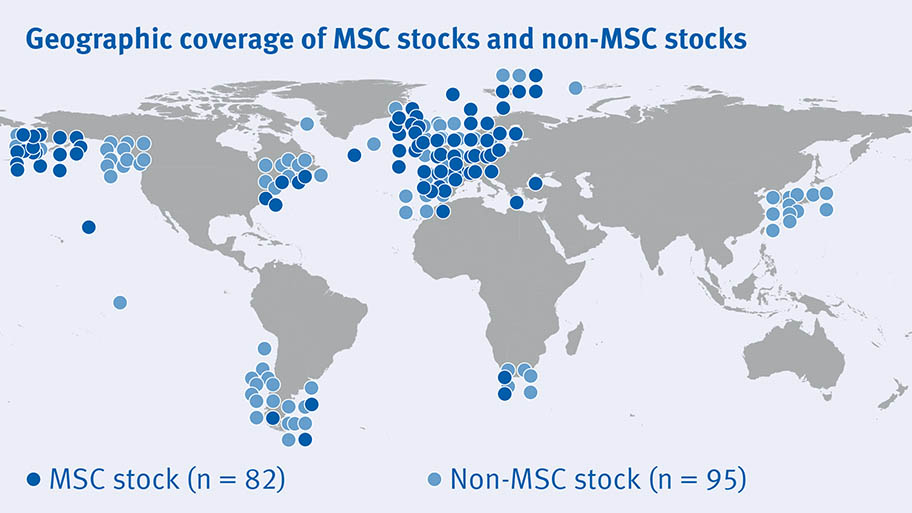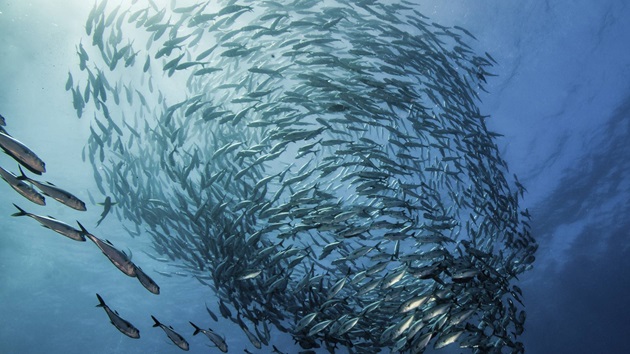Fish stocks targeted by MSC certified fisheries were found to perform better against key sustainability criteria than those targeted by fisheries without certification, new research published today in the peer-reviewed journal Frontiers in Marine Science has found.
In the most comprehensive comparison to date, the analysis looked at publicly available data on the abundance of 80 fish stocks targeted by MSC certified fisheries against data on more than 90 stocks where fisheries lack MSC certification.
It covered a wide range of species, including tuna, small pelagic fish and whitefish and the geographic areas of East and West Coast Canada, Japan, the Pacific Ocean, Southern Africa, East Coast USA and the Atlantic Ocean.The research compared the stocks on two sustainability criteria – or biological reference points - widely used by fishery managers: first, the limit that a stock can’t fall below before it is considered overfished, and second, the target level that fisheries aim towards for the stock to be considered sustainable.
Stocks targeted by fisheries certified to the MSC’s standard for sustainable fishing were found to be more consistently fished within sustainable limits. In addition, stocks targeted by MSC certified fisheries were found to have greater abundance relative to sustainable harvest targets compared with stocks fished by non-MSC certified fisheries.

Dr Rohan Currey, Chief Science and Standards Officer at the Marine Stewardship Council, said:
“Accelerating progress to tackle the challenge of overfishing remains an urgent priority globally. We know how to solve this problem. This research demonstrates that implementing best practice in fisheries management, as required by the MSC Fisheries Standard, can deliver sustainable outcomes. Governments, fishery managers, fisheries and indeed all who champion sustainable fishing practices, will be encouraged by these outcomes.”
The findings reinforce that consumers can have confidence that seafood products carrying the MSC blue label come from fisheries that are well-managed with stocks that are not overfished and remain within sustainable limits.
As overfishing continues to rise, with more than a third (35%) of the world’s fish stocks overfished, well-managed fisheries are critical to addressing this challenge. Fisheries that are managed sustainably are also more productive in the long-term, ensuring a vital source of protein-rich food for the planet’s growing population.


